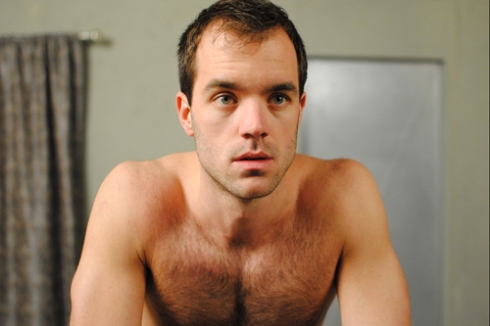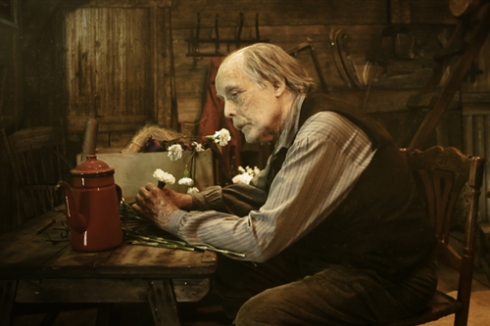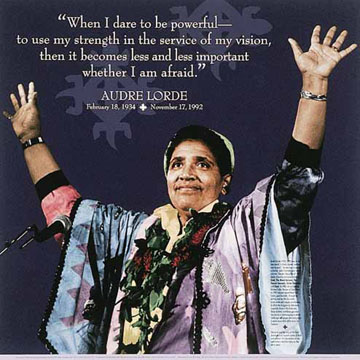Mystery Date
Mystery Date is the name given to a Shorts Program at this year’s Frameline. Each story has a twist, secret, or some type of mystery/horror element.
Silver Stiletto (2012)
Director: Luke Mayze
Writer: Craig Rossiter
Stars: Guy Edmondsr Guy Edmonds
Two gay bashers are brutally murdered and the only suspect is Silver Stiletto, a drag queen. The story takes place in a police interrogation room with flashbacks to the crime. Though the idea of the story is good, the execution is a little lacking. The Short is stuck in a no-man’s land of sometimes being a comedy and sometimes being a drama, but in the end failing at both. What it should have been is a dark comedy in the line of War of the Roses. The acting, editing, and look of the Short are all good; the story is just lacking.
Grade = C
Regrets (2011)
Director: Michelle Pollino
Writer: Rob Williams
Stars: Matt Lundy and Peter Patrikios
Matt wakes up in a bed and bedroom he doesn’t know with a man he doesn’t remember. After the initial disorientation of trying to remember how he got there and what he did, Peter says he is leaving to work and Matt can take his time to shower and leave. While Peter is away Matt does some minor snooping around, and doesn’t like what he finds: men’s underwear in different sizes & styles, multiple cell phones, keys, and a small photo album with pictures of different one-night stands sleeping in bed. Paniced, Matt quickly discovers there are no windows in this bedroom and the doors are locked. The story is well made and paced, but the acting is average at best.
Grade = B
Turno de Noche (Night Shift) (2011)

Director: Carlos Ruano
Writers: Carlos Ruano and Susana Lopez Rubio
Stars: Adam Jezierski and Israel Rodriguez
Israel is a young window dresser for a department star. Adam is a new mall security guard that eyes him through the window. They eventually meet and fall for each other. When Israel shares with Adam he is scared to go to the storage basement for the mannequin, Adam offers to accompany him. If you are a fan of Doctor Who’s Weeping Angels, then you will be a fan of Turno de Noche. It is a well made and acted Short reminiscent of a Twilight Zone episode.
Grade = A
The Rookie and the Runner (2012)

Writer/Director: Augie Robles
Stars: Ephraim Lopez, George Perez, and Rich Gallardo
A jogger runs along a winding road. At a break to catch his breath he runs into two potential tricks. Choosing the jogger they go into the woods, followed behind by the motorist who left his car. In a clearing in the woods the two joggers get close and the motorist looks on. But then fantasy becomes reality and the other jogger is a cop there to entrap men cruising for sex. The motorist snaps a twig as he backs away thereby distracting the cop. The jogger runs away; the cop chases. The Short is well shot, but the story does not draw you in. The tension felt had more to do with the audience knowing something was going to happen by the theme of the Shorts Program, then with what you were seeing up on the screen.
Grade = C
My Night with Andrew Cunanan (2011)
Writer/Director: David Kordt-Thomas
Stars: David Kordt-Thomas and Adrain Bustamante
When David discovers the rampage of serial killer Andrew Cunanan (Adrain Bustamante), he flashes back to the night he met him. David is out at a bar when he is hit on by Cunanan. What follows are David’s thoughts of what did and what could have happened if he made different choices. Though the idea of the story is very good, the “what if” scenarios shown vary in quality and some make no sense.
Grade = C-
Solo Un Detalle (It’s Just a Detail) (2010)
Writer/Director: Giovanni Maccelli
Stars: Helena Castaneda
A quick Short about a body disposal that goes wrong when the culprit is surprised in her apartment by friends & family gathered for her surprise birthday party. Well concieved story with good acting and editing. Short, sweet and to the point.
Grade = A
La Victoria de Ursula (Ursula’s Victory) 2011
Directors: Julio Marti & Nacho Ruiperez
Writers: Julio Marti, Nacho Ruiperez, and Juan Verdu
Stars: Irene Ferrando, Terele Pavez, and Sergio Caballero
Ursula is a young girl who sneaks into a cementary to dig-up a grave. Before she can proceed she is caught by the grave digger. In his quarters she reveals the motivation for her actions, eventually winning him over. The look and feel of the Short is very Tim Burton before he became a cliche of himself. The story successfully maintains the mystery of her actions until the very end. A very well made, acted, and scripted Short.
Grade = A









